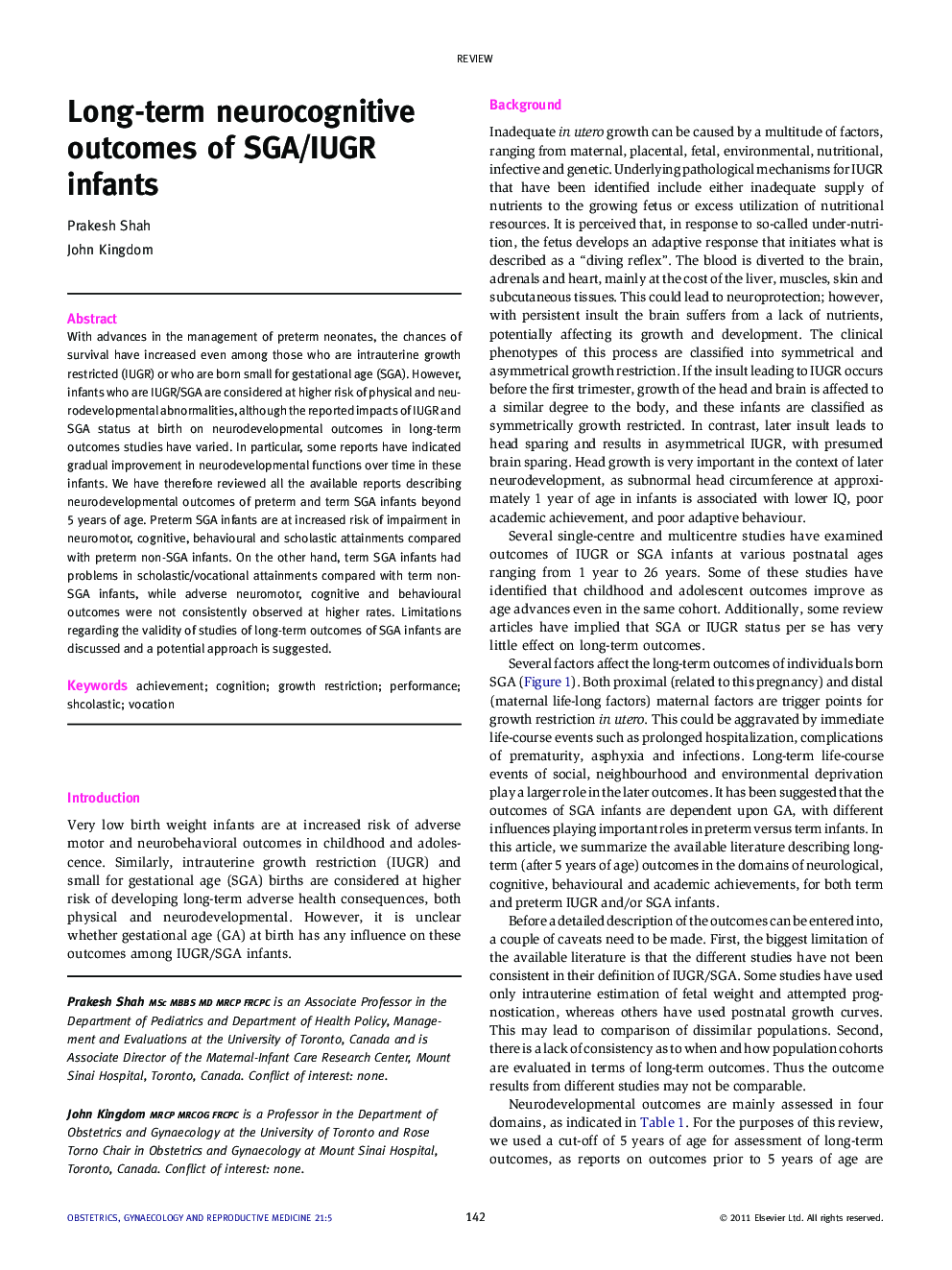| Article ID | Journal | Published Year | Pages | File Type |
|---|---|---|---|---|
| 3967146 | Obstetrics, Gynaecology & Reproductive Medicine | 2011 | 5 Pages |
With advances in the management of preterm neonates, the chances of survival have increased even among those who are intrauterine growth restricted (IUGR) or who are born small for gestational age (SGA). However, infants who are IUGR/SGA are considered at higher risk of physical and neurodevelopmental abnormalities, although the reported impacts of IUGR and SGA status at birth on neurodevelopmental outcomes in long-term outcomes studies have varied. In particular, some reports have indicated gradual improvement in neurodevelopmental functions over time in these infants. We have therefore reviewed all the available reports describing neurodevelopmental outcomes of preterm and term SGA infants beyond 5 years of age. Preterm SGA infants are at increased risk of impairment in neuromotor, cognitive, behavioural and scholastic attainments compared with preterm non-SGA infants. On the other hand, term SGA infants had problems in scholastic/vocational attainments compared with term non-SGA infants, while adverse neuromotor, cognitive and behavioural outcomes were not consistently observed at higher rates. Limitations regarding the validity of studies of long-term outcomes of SGA infants are discussed and a potential approach is suggested.
